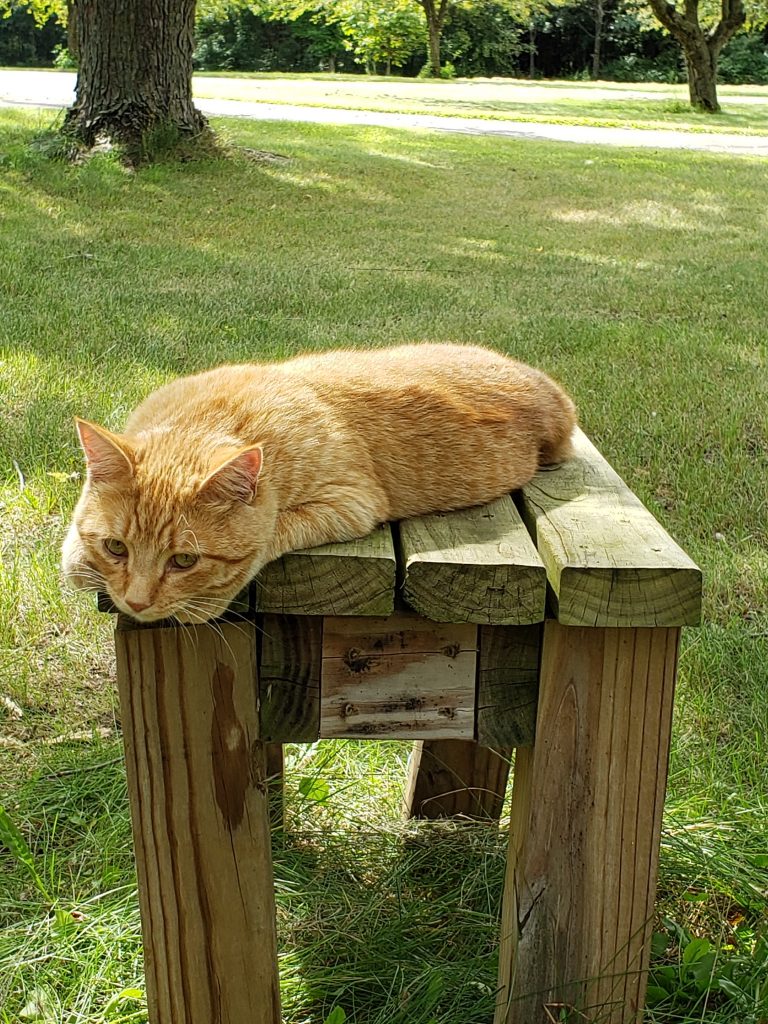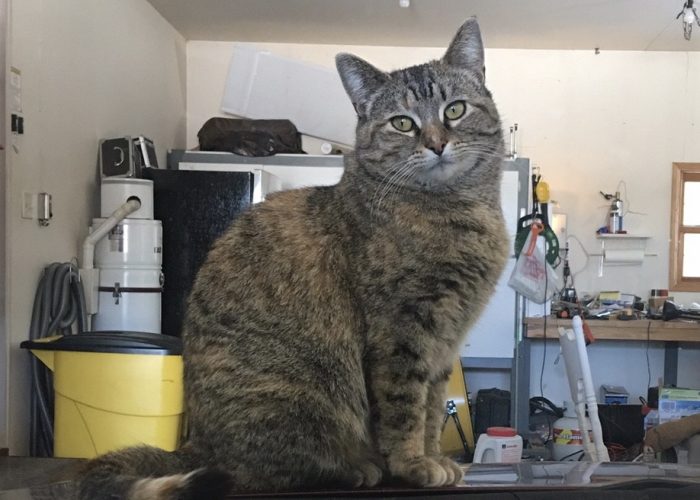By: Talin Seta Shahinian
Having a cat means sharing your life with a cuddly, loving ball of fur. As you learn how to care for them, some things to keep them safe that we watch out for are obvious: trying to keep them indoors to prevent them from getting lost, avoiding fleas, and preventing them from being struck by an automobile. You may not think about the dangers that could be lurking right inside your home! From common plants to human medicines, you need to be mindful of a host of toxic substances.
What Foods Are Toxic to Cats?

What’s safe for humans to eat or drink doesn’t always extend to cats. What’s fine for us can be toxic to them. Keep the following foods and beverages away from your cat:
- Chocolate.
- Onions.
- Garlic.
- Alcohol.
- Xylitol, a common ingredient in sugar-free gum and toothpaste.
- Any drinks containing caffeine.
- Macadamia nuts.
- Raw yeast dough.
- Raw or undercooked meat.
- Grapes and raisins.
Over-the-Counter Medications
Over-the-counter (OTC) medications are unsafe for cats, some even deadly. The class of OTC medications considered anti-inflammatory, such as ibuprofen, aspirin, and naproxen, are dangerous. They can cause organ damage and even death. Even Tylenol, which isn’t strictly classified as an anti-inflammatory, can cause significant harm to your cat. The risk is high when they’re stored in purses, backpacks, or tote bags, which are too easy for cats to get into to snuggle up. So, store these medicines securely. If you must have it with you, carry a bottle with a child-safe cap, and keep it in an inner zippered pocket.
Prescription Medications
You know you shouldn’t share OTC or human prescription medicine with your cat, but they could get a hold of your pills if they’re on your nightstand, bathroom counter, or in your purse or other bags. Some of the most common human medications that cause problems for cats are for attention deficit disorder, heart conditions, thyroid disease, and anxiety. Take care to keep your prescription medications in a secure location. If you’re in doubt that a drawer, closet, or cabinet is secure enough, make sure all your prescriptions have child-safe caps. Remember, some smart cats can open drawers and cabinets.
Common Poisons
Toxic house plants, such as the true Lily, or Easter lily, should never be kept in a household or on the property when you have a cat. Other substances that pose dangers to your kitty are household cleaning fluids, lawn pesticides, rodenticides, and car antifreeze. Vitamin D and psoriasis cream are also a no-no for cats. Rodent traps should not be kept around your house, as they could end up trapping your cat’s delicate paws instead. Rodent bait in other formats is also highly toxic to cats. Cats are great hunters and often are the best deterrent to unwanted critters.
Veterinary Products
Veterinary products are sometimes flavored like treats to get your cat to take their medication. If your cat takes too much of a liking to her medication, she might consume a dangerous amount if she can get into a bottle. Keep all cat medications stored away in a secure location to prevent that from happening. Also, be aware that accidentally giving dog medicine to your cat is dangerous, as cats are sensitive to some ingredients safe for dogs. Flea and tick medicines meant for dogs are toxic to cats. So, be very careful, and alert on all fronts.
More Information on Common Toxins

This list is by no means a complete listing of all toxins for cats. For more substances that are dangerous for your kitty, see Top Cat Poisons: Plants, Medications, Insecticides, and More. If you suspect your cat has gotten into anything dangerous for him, take him to the vet immediately. If no immediate appointments are available at your regular vet, do not hesitate to seek emergency veterinary services at an animal hospital. Time is of the essence when it comes to any toxin. Your cat has a better chance of survival and recovery with prompt medical attention.
What’s the Number for Animal Poison Control?
If you suspect your pet has gotten into a toxin in your home, call the Animal Poison Control hotline before calling your vet. You can get help at 888-426-4435. Often, your vet will call the hotline when you bring your pet in for toxins and have to charge you for the call. You can save yourself time and money by making the call to the Animal Poison Control hotline yourself. Someone is available to answer your questions 24 hours a day, seven days a week.
We’re Here for You and Your Cat
If you live in NW Wisconsin, Purple Cat Mobile Vet Clinic is here to help you keep your cat healthy and happy. We’re a high-quality, high-volume, low-cost spay/neuter clinic. We see cats exclusively. Find information for scheduling on our www.purplecatvet.com website. You can also look on our Facebook page for more helpful information on all things feline!
